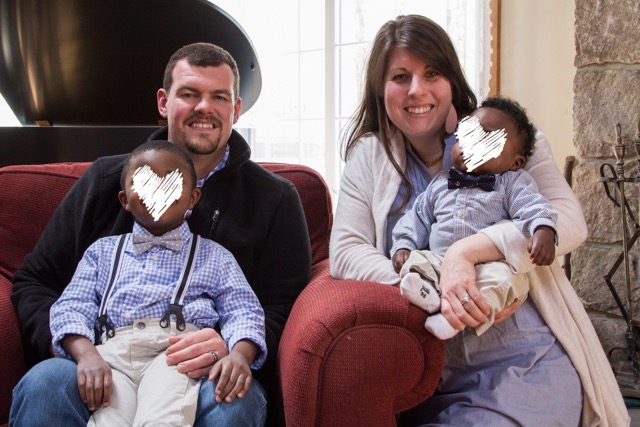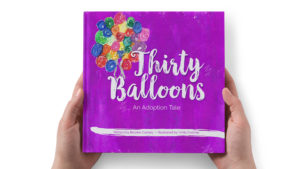Please welcome my new friend, and fellow foster-adoption mama, April Swiger, as she shares a part of her family’s foster-adoption story. For more information on the foster-adoption journey, please see the links below to her blog and her new book, Dignity and Worth: Seeing the Image of God in Foster Adoption. Welcome, April, to This Temporary Home!
Upon meeting someone a few years ago, Adam and I shared our adoption plans with her.
Without missing a beat, she replied, “You’re not adopting from foster care, are you? All of those children are damaged!”
I didn’t know how to respond. At the time, we were trying to adopt an infant, so I probably mumbled something about that fact, hoping to appease my new acquaintance and end a terribly awkward conversation.
When I recall the thoughtless things that people have said to me, that interaction strikes me as unusually devastating. The issue isn’t that the comment offended me personally—although it did—so much as it is that the comment promoted the faulty belief that children in foster care or from orphanages abroad are not worth adopting, that their lives can’t be redeemed.
Many of the children who have been in foster care or orphanages have experienced neglect, physical abuse, sexual abuse, homelessness, hunger, and/or domestic violence. The trauma they have experienced often leads children to cope through unusual behaviors. They may rock themselves to sleep in silence because no one is there to hold them and meet their needs, they may use feces to ward off an abuser, or very young children may begin to parent even younger siblings because no one else will. Suffering has trained their brains to respond to events in certain ways, ways that the child who is born into a loving, structured, and stable family has never had to learn.
In addition to abnormal behaviors, children’s responses may take the form of developmental and cognitive delays, attachment disorders, learning disabilities, and other challenges. These challenges likely won’t disappear as soon as a child has been moved into a safe home. Foster children often need to learn how to trust other people again, or for the first time. This learning journey requires time, effort, and thoughtful parenting strategies that may differ from the status quo.
Over the years, I’ve received a handful of comments similar to the “damaged kids” remark. When I find this happening, I try to draw attention to the gospel and to the way that God values human life. My goal isn’t to rebuke others but to remind myself of this truth and to be an ambassador for children who can’t advocate for themselves, who can’t explain that they are not too “damaged” or “too far gone” for adults to invest in them.
Isn’t that the gospel? We were dead in our sin, totally damaged by the effects of the fall, separated from God, and unable to save ourselves. Without Jesus and the resurrection, sin makes us “too far gone” in the sense that there is no hope for salvation through our efforts. God sent his son to live a perfect life, die for our sin, rise from the dead, save us, and bring us close to him. Salvation makes us new creations who have access to the Father’s throne through divine adoption. There is eternal hope in this gospel and immense hope for foster children because there is one God who restores relationships in this life and the next.
To be clear, I’m not advocating that foster parents take on a savior mentality. Adoptive parents are not Jesus, and we are not doing our children any favors by “rescuing” them from foster care, as if adoption is strictly about charity. These children owe us nothing. They are welcomed into our families, fully and completely, regardless of where they come from, how they behave, or who they grow up to be. Adam and I never expect our children to be grateful that we chose to parent them and, ultimately, adopt them.
On a related note, Christians are instructed to care for the fatherless, specifically in James 1:27, which says, “Religion that is pure and undefiled before God, the Father, is this: to visit orphans and widows in their affliction, and to keep oneself unstained from the world.” Caring for the fatherless is a practical way to live out our faith in Christ. Life is valuable and full of purpose, and foster children, with everything they have lost, deserve a family where they can experience that life.
I say it all the time: We have the best kids. Adam and I often pause in the kitchen, look at each other, and ask, “How in the world did we get such great kids!?” God has been very kind to us.
To be honest, though, I didn’t exactly experience love at first sight when Jayda arrived. In that moment, fear eclipsed love. Jayda had no obvious flaws, but we had never been parents before and were terrified.
After only a few hours, this little boy was winning over our hearts with his high-pitched toddler giggle, extensive vocabulary, and love for eating ketchup on everything. Our affection for him hasn’t waned a bit; it’s only grown since those first few days together. We knew the importance of committing to Jayda, and parental affection flowed from our hearts as we made the choice to attach to a child we might lose.
Excerpt from chapter three (Valuing Our Children’s Unique Pasts: Learning How to Honor and Respect Their Losses) from Dignity and Worth: Seeing the Image of God in Foster Adoption.
April Swiger is a wife, mother to two awesome little boys (Jayda and Zay), homemaker, and blogger. In 2013, her family moved to her home state of Connecticut, where her husband, Adam, serves as the worship pastor at Christ the Redeemer Church. Living in a 100-year-old farmhouse, being debt-free, cooking nourishing food, and enjoying introvert-friendly activities are some of her favorite things.
You can join her for more “Faithfulness in the Mundane” at www.aprilswiger.com and Instagram.com/aprilswiger/.
Leave a Comment









Speak Your Mind